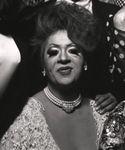MARCH IS WOMEN'S HISTORY MONTH
←
→
Page content transcription
If your browser does not render page correctly, please read the page content below
MARCH 2021 | VOLUME NO. 2
MARCH IS WOMEN'S
HISTORY MONTH
SETA'S Diversity & Inclusion Committee
The issue's
We celebrate Women's History Month to remind ourselves of the
must-read accomplishments of women throughout the many years to culture
and society. From science to politics, it's is a chance to reflect on the
articles trailblazing women who lead the way for change.
To create a more equitable and just American society, the
-Why we celebrate
Smithsonian American Women's History Initiative will create,
Women's History
disseminate, and amplify the historical record of the
-100 Most Important
accomplishments of American women.
Women
-Women's Suffrage
In America’s most defining moments—times that shaped
-Ruth Bader Ginsburg
-Malala Yousafzi
constitutional rights, yielded scientific breakthroughs, created the
-Amazing Transgender symbols of our nation—a diversity of women’s stories has not been
Women Who Changed widely told. Join us in learning more in "Because of Her" link below:
History
https://womenshistory.si.edu/MARCH 2021 | VOLUME NO. 2 Why Do We Celebrate Women’s History Month? Women’s History Month is a dedicated month to reflect on the often-overlooked contributions of women to United States history. From Abigail Adams to Susan B. Anthony, Sojourner Truth to Rosa Parks, the timeline of women’s history milestones stretches back to the founding of the United States. The actual celebration of Women’s History Month grew out of a weeklong celebration of women’s contributions to culture, history and society organized by the school district of Sonoma, California, in 1978. Presentations were given at dozens of schools, hundreds of students participated in a “Real Woman” essay contest and a parade was held in downtown Santa Rosa. A few years later, the idea had caught on within communities, school districts and organizations across the country. In 1980, President Jimmy Carter issued the first presidential proclamation declaring the week of March 8 as National Women’s History Week. The U.S. Congress followed suit the next year, passing a resolution establishing a national celebration. Six years later, the National Women’s History Project successfully petitioned Congress to expand the event to the entire month of March. International Women's Day International Women’s Day, a global celebration of the economic, political and social achievements of women, took place for the first time on March 8, 1911. Many countries around the world celebrate the holiday with demonstrations, educational initiatives and customs such as presenting women with gifts and flowers. The United Nations has sponsored International Women’s Day since 1975. When adopting its resolution on the observance of International Women’s Day, the United Nations General Assembly cited the following reasons: “To recognize the fact that securing peace and social progress and the full enjoyment of human rights and fundamental freedoms require the active participation, equality and development of women; and to acknowledge the contribution of women to the strengthening of international peace and security.” https://www.history.com/topics/holidays/womens-history-month 100 Most Important Women in World History Not an all inclusive list as there are too many woman throughout history who have made lasting impacts and touching many generations and society: https://www.thoughtco.com/most-important-women-in-world-history-3528530? utm_source=emailshare&utm_medium=social&utm_campaign=mobilesharebutton2 This also includes a video at the bottom about the Most Important Women of the Americas Women who have played a leading role in the Americas highlighting trail blazers such as: Maria Elena Walsh-Argentina-Poet, Composer whose works became the anthem of freedom under dictatorship. Gabriela Mistral-Chile-Poet and Teacher-Won Nobel Prize in 1945 for literature; only female Nobel laureate in Chile (literature) Policarpa Salvarriieta "La Pola"-Colombia Independence fighter for Colombia under Spanish Rule. Fought for freedom and was executed for treason. "Although I am a woman and young, I have more than enough courage to suffer this death and a thousand more!” Carmela Combe-Peru- First Peruvian female pilot at the age of 20 Elvia Carillo Puerto-Mexico-First Mexican Congresswoman chosen by men. Women in Mexico had no right to vote until 1955 thanks to Ms. Carillo Puerto's struggle.
MARCH 2021 | VOLUME NO. 2
Women's Suffrage
The women’s suffrage movement was a decades-long fight to win the
right to vote for women in the United States. It took activists and
reformers nearly 100 years to win that right, and the campaign was not
easy. Disagreements over strategy threatened to cripple the movement
more than once. But on August 18, 1920, the 19th Amendment to the
Constitution was finally ratified, enfranchising all American women
and declaring for the first time that they, like men, deserve all the
rights and responsibilities of citizenship.
https://www.history.com/topics/womens-history/the-fight-for-womens-
suffrage
In 1913, the Woman's Suffrage Movement suffrage parade through
Washington DC completely changed the way protests were viewed and carried
out by American public. The parade from the Capitol to Treasury building set
the precedent for future protest marches.
https://www.womenshistory.org/exhibits/parading-progress
Honoring Women's History:
Just a few names we don't know
Over the course of history, there are countless women who
have changed the world as we know it. Many of which you
have never heard of. Below are examples of a few women
whose work has changed the society with their many
contributions.
Alice Ball-African American chemist who developed the 1st
successful treatment of leprosy.
Nelly Bly- journalist, In 1887, Ms. Bly posed as mental patient
to expose the terrible conditions inside mental institutions-
her work created lasting reforms in mental health facility
conditions. https://www.youtube.com/watch?
v=VgGOBbjeNZU&t=9s
Stephanie Kwolek- Chemist who created Kevlar
https://www.youtube.com/watch?v=wzyHeQcFmvoMARCH 2021 | VOLUME NO. 2
Ruth Bader Ginsburg
Ruth Bader Ginsburg became the second female justice of the U.S. Supreme Court.
Born in 1933 in Brooklyn, New York, Bader taught at Rutgers University Law School
and then at Columbia University, where she became its first female tenured professor.
She served as the director of the Women’s Rights Project of the American Civil
Liberties Union during the 1970s, and was appointed to the U.S. Court of Appeals for
the District of Columbia in 1980. Named to the U.S. Supreme Court in 1993 by
President Bill Clinton, she continued to argue for gender equality in such cases as
United States v. Virginia. She died September 18, 2020 due to complications from
metastatic pancreas cancer.
During the 1970s, she also served as the director of the Women’s Rights Project of the
American Civil Liberties Union (ACLU), for which she argued six landmark cases on
gender equality before the U.S. Supreme Court.
However, she also believed that the law was gender-blind and all groups were entitled
to equal rights. One of the five cases she won before the Supreme Court involved a
portion of the Social Security Act that favored women over men because it granted
certain benefits to widows but not widowers.
Malala Yousafzi
Who Is Malala Yousafzai?
Malala Yousafzai is a Pakistani education advocate
who, at the age of 17 in 2014, became the youngest
person to win the Nobel Peace Prize after surviving
an assassination attempt by the Taliban. Yousafzai
became an advocate for girls' education when she
herself was still a child, which resulted in the Taliban
issuing a death threat against her. On October 9,
2012, a gunman shot Yousafzai when she was
traveling home from school. She survived and has
continued to speak out on the importance of
education.
Why we need Women's History Month (Op-ed)
https://www.youtube.com/watch?v=p7i0dkRjKJY&t=25sMARCH 2021 | VOLUME NO. 2
Amazing Transgender Women Who Changed History
So on this Women's History Month, we're taking time to celebrate the
accomplishments of transgender women. The following nine women may
not have called themselves transgender, because language is always evolving
and in their time, words like "transsexual" or "queen" might have made
more sense. But no matter what they called themselves, these are women
who paved the way for transgender and gender non-conforming people who
came after them.
They were pioneers, "mothers," and activists, simply for being brave enough
to live. Read on for their stories, but remember that this is not an
exhaustive list. There are plenty more transgender women we don't know
about who had a hand in making the world a more interesting and inclusive
place.
"Some impression, some mark upon the world. But then you think, you've
left a mark on the world if you just get through it and a few people
remember your name." (Dorian Corey)
Top row: Marsha P. Johnson, Sylvia Rivera, Christine
Jorgensen; Middle row: Lili Elbe, Coccinelle, Angie
Xtravaganza; Bottom row: Dorian Corey, Roberta Cowell, https://www.refinery29.com/en-us/transgender-women-activists-history
Renee Richards
Level Up your knowledge and
understanding with a TEDx
Talk!
https://youtu.be/nNFcUqOmwLQ -
Columbus Woman (6 min)You can also read


























































